The joke is really on us
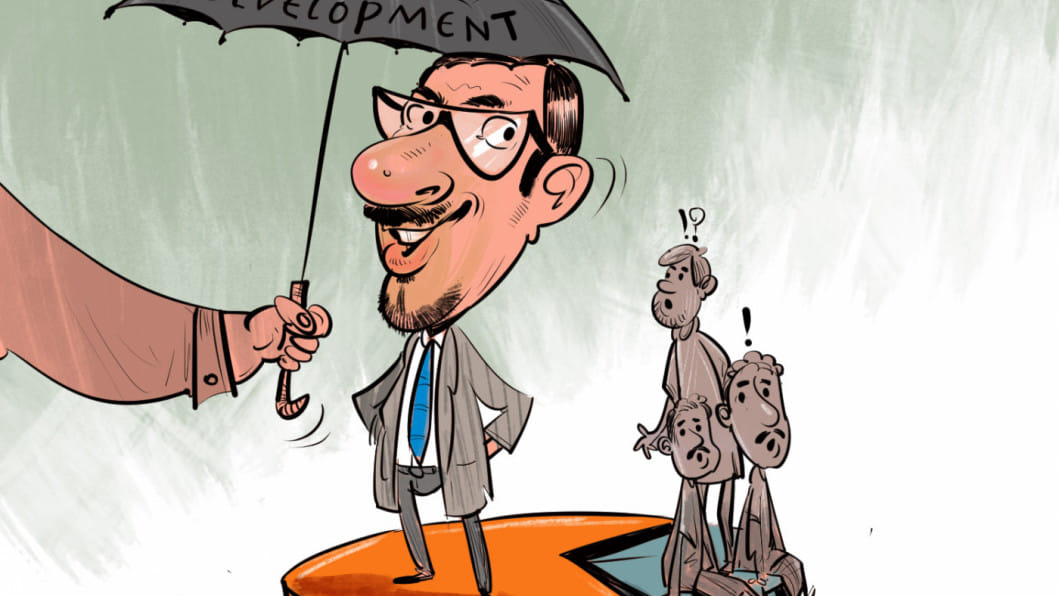
A former journalist colleague of mine once shared a joke with me. It goes like this: after attending a conference in India, a Bangladeshi minister visits an Indian minister's house. It looks more like a mansion. Impressed, he asks his Indian counterpart, "How can you afford this? Do ministers here get paid so much more than us?" The Indian minister takes his guest to his backyard. He then points toward a river beyond his property. His guest is further astonished that he could afford a riverside house, with a backyard. But the Indian minister quickly tells him to focus, and asks, "What do you see on top of the river?" His guest replies, "A half-constructed bridge." The Indian minister then responds enthusiastically, "Fifty percent," meaning he pocketed 50 percent of the bridge's budget.
A year later, the Indian minister comes to Bangladesh and visits the Bangladeshi minister. Arriving at his house, the Indian minister is shocked and insulted. After lunch, he tells his host, "When you were my guest, why did you pretend like you lived in a small house when your house is actually a palace? And how could you afford it?" His guest takes him to his huge backyard, akin to a football field. He then points beyond it, towards a river, and asks, "What do you see on top of it?" The Indian minister replies, "Nothing." The Bangladeshi minister, beaming with pride, says, "One hundred percent."
When I first heard this joke about nine years ago, I thought to myself that it portrayed Bangladesh as if it were a banana republic. Little did I know then that, less than a decade later, it would align so much with our reality.
Take the case of the debacle surrounding the National Household Database (NHD). The initiative to set it up was undertaken by the government in July 2013. The initial project deadline was set for December 2017, with an estimated cost of Tk 328 crore. But, as has become the norm, it went through numerous revisions. The project was finally expected to finish by the end of 2022, with its cost rising by a whopping 112.75 percent to Tk 727 crore.
In January 2018, while admitting that misuse occurs at the time of spending money set aside for safety net programmes, Finance Minister Mustafa Kamal said, "The national database will stop the misuse." In a letter he wrote to the World Bank – perhaps to impress it – in March 2022, he said the government was committed to using the long-overdue NHD to disburse the social safety net allocation of Tk 113,576 crore. A few months – and thousands of crores – later, a government report found that the project, in the state that it was in, was "unusable" – meaning corruption ate away a project that promised to lower government corruption.
But maybe I am being a bit too critical. After all, the Awami League government does deserve a lot of credit for developing quite a bit of our infrastructure. But at what cost?
Corruption, no matter how cleverly you pull it off, always inflicts a cost. What the government seems to have nearly perfected is delaying the people from realising that the cost is coming due.
When the AL came to power, the two things Bangladesh lacked badly – and still does to an extent – were enough roads and highways. This government has built quite a bit of both. However, according to a 2017 World Bank report, Bangladesh spends a lot more than India and China on road construction because of time overruns and lack of competitive bidding. A four-lane highway costs $1.1-1.3 million to build in India, and $1.3-1.6 million in China. In Bangladesh, the estimated construction cost of a kilometre of Rangpur-Hatikumrul four-lane highway was $6.6 million; $7 million for the Dhaka-Sylhet four-lane highway; $11.9 million for the Dhaka-Mawa four-lane highway; and $2.5 million for each of the Dhaka-Chattogram and Dhaka-Mymensingh four-lane highways.
Another major reason for the high construction cost, I would argue, is corruption. According to Prof Shamsul Haque of Buet's Department of Civil Engineering, most construction firms that are awarded public works contracts are politically connected. Having political clout, they rarely ensure quality road construction due to a lack of proper monitoring by the relevant authorities. As a result, these expensively built roads need regular repairs, which puts further burden on the public exchequer.
Despite corruption seeping into every sector, the one that has perhaps been the worst affected is banking. For years, independent experts and the media have been highlighting it, while most government officials unashamedly deny it. But earlier this month, Moody's, one of the big three global rating agencies, downgraded its outlook for Bangladesh's banking sector from "stable" to "negative." This will make financial transactions more difficult and costly for Bangladesh.
According to Syed Mahbubur Rahman, former president of the Association of Bankers, Bangladesh, in spite of the dollar crisis, "many of our banks were… able to manage transactions with foreign counterparts because of long-term relationships and confidence [in] each other. Now that the whole banking system is being formally certified as riskier, it will significantly hinder our cross-border transactions."
Reportedly, according to sources, some overseas institutions have already curtailed credit limits for Bangladeshi banks. Nikkei Asia reported that a few weeks ago, the Dubai-based Mashreq Bank and Standard Chartered Bank's Hong Kong office declined letter of credit (LC) openings for at least two Bangladeshi banks, according to high-ranking executives.
What it all boils down to is the fact that corruption, no matter how cleverly you pull it off, always inflicts a cost. What the government seems to have nearly perfected is delaying the people from realising that the cost is coming due, because in the end, given the true state of our government's tolerance for corruption – where the perpetrators are never held to account – it is the people who have to foot the bill.
So, we can joke away all we want to make ourselves feel better about the web of corruption that we find ourselves tangled in. But ultimately, it seems the joke is really on us.
Eresh Omar Jamal is assistant editor at The Daily Star. His Twitter handle is @EreshOmarJamal

 For all latest news, follow The Daily Star's Google News channel.
For all latest news, follow The Daily Star's Google News channel. 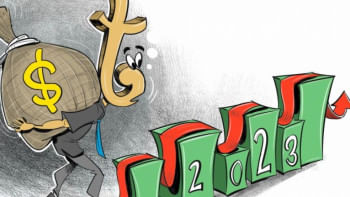
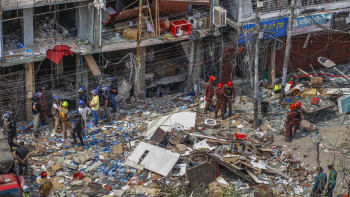



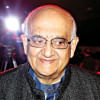


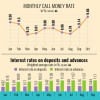

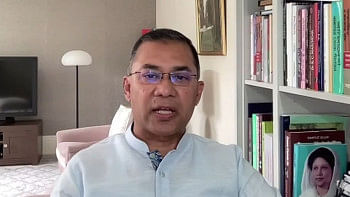
Comments